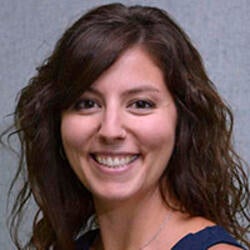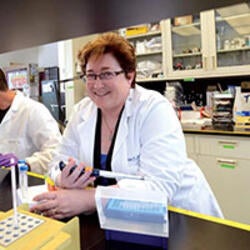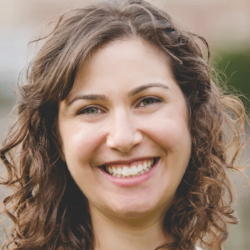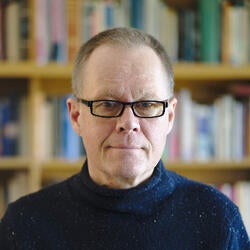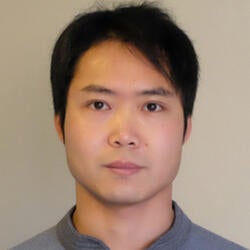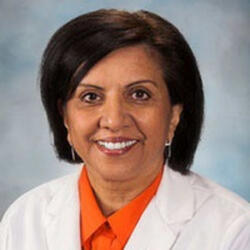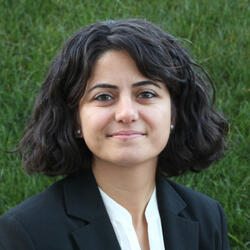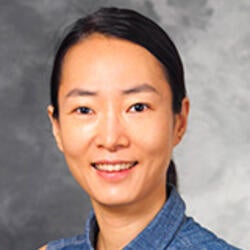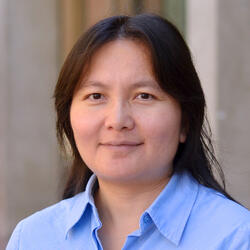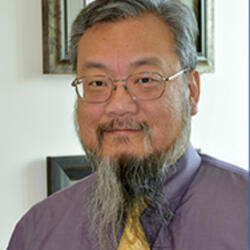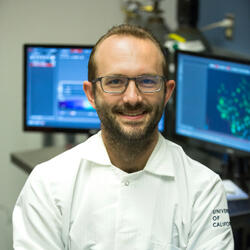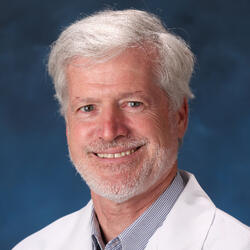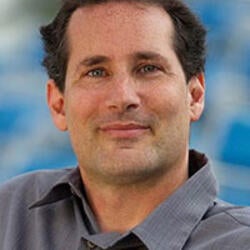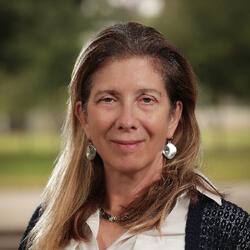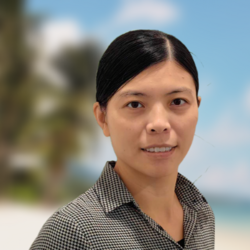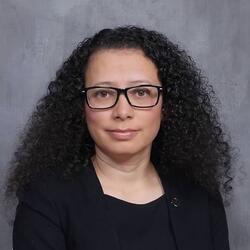Directors
Ilana Bennett, Associate Professor of Psychology
Website: lanilab.ucr.edu
Email: ilana.bennett@ucr.edu
Research: Why do younger adults learn and remember better than older adults? Even within these age groups, why do some adults have better memory than their peers? Dr. Bennett tests whether these individual- and age-related differences in learning and memory can be attributed to differences in brain structure and function measured using magnetic resonance imaging (MRI). The broader goals of her work are to determine whether these neural and cognitive markers can predict individuals with or at risk of dementia and whether they can be improved to promote healthy aging.
Marcus Kaul, Professor of Biomedical Sciences
Email: marcus.kaul@ucr.edu
Research: His research aims at understanding how chronic infections, such as with HIV, psychostimulant use, and inflammation influence aging and contribute to the development of neurodegenerative diseases for which age is a major risk factor. He employs in vitro and in vivo approaches, including small animal, transgenic and genetic knockout models, human peripheral blood as well as brain cells, some derived from induced pluripotent stem cells (iPSC) as well as blood and cerebrospinal fluid samples from people with and without HIV infection. He studies age-dependent behavioral outcomes and neuroinflammation, and underlying cellular signaling mechanisms and gene expression in human cells, post mortem specimen and rodent models. One focus is the identification of potential biomarkers for acceleration of aging processes and the development of neurodegenerative diseases.
UCR Members
Olivia Atherton, Assistant Professor of Psychology
Website: https://srchlab.ucr.edu/
Email: olivia.atherton@ucr.edu
Research: Dr. Atherton's research program aims to understand the associations among self-regulation, sociocultural contexts, and health across the lifespan. She asks questions like: How do self-regulatory traits develop from early life through old age? What are the sociocultural factors that predict self-regulation development? And, how do sociocultural contexts and self-regulatory traits impact mental and physical health across the lifespan? To answer these questions, she uses large-scale longitudinal data and statistical techniques such as structural equation modeling, multilevel modeling, and coordinated data analysis. Dr. Atherton has a particular interest in working with socioculturally diverse populations including Latinx communities, socioeconomically-disadvantaged and rural populations, and aging samples from across the globe.
Monica Carson, Chair of Biomedical Sciences
Website: cgni.ucr.edu
Email: monica.carson@ucr.edu
Research: Her research aims to define blood-brain interactions that contribute to lifelong brain health versus to the susceptibility, severity, progression and/or exacerbation of neurodevelopmental, neuroinflammatory and neurodegenerative disorders. Specifically, she contrasts the relative roles of brain-resident and blood-derived macrophages in response to environmental exposures, physiologic stressors, systemic inflammation, and brain insults (injury, infection and autoimmunity).
Carlos Cortes, Professor Emeritus of History
Email: carlos.cortes@ucr.edu
Halle Dimsdale-Zucker, Assistant Professor of Psychology
Website: hallezucker.com
Email: halle.dimsdale-zucker@ucr.edu
Research: Dr. Dimsdale-Zucker is trying to understand how contextual factors, such as inter-item semantic, spatial, and temporal features, influence what we remember and how our memories are represented by the human brain. To answer these questions, she uses a range of tools including behavioral testing, computational approaches such as Hidden Markov Models, and functional imaging (electroencephalography [EEG] and functional magnetic resonance imaging [fMRI]) in both healthy younger and older adults.
Howard Friedman, Distinguished Professor of Graduate Division
Website: howardsfriedman.com
Email: howard.friedman@ucr.edu
Research: Dr. Friedman has lead efforts for several decades to develop the field of health psychology. His heavily-cited studies of lifespan predictors of healthy aging and longevity are summarized in his book on The Longevity Project.
Thomas Girke, Professor of Bioinformatics
Website: girke.bioinformatics.ucr.edu
Email: thomas.girke@ucr.edu
Research: Dr. Girke's research addresses fundamental questions at the intersection of genome biology and chemical genomics in the healthy aging field and longevity. These include: Which factors in genomes, proteomes and metabolomes are functionally relevant and perturbable by small molecules? What properties of small molecules and their targets are the main drivers for compound-target interactions? How can these insights be used to develop precision perturbation strategies for biological processes with translational applications in both agriculture and human health? To address these questions, the group develops computational methods for analyzing both large-scale omics and small molecule bioactivity data with translational application in longevity.
Jia Guo, Assistant Professor of Bioengineering
Email: jia.guo@ucr.edu
Research: Dr. Guo's research focuses on development of reliable, quantitative, and accurate magnetic resonance imaging (MRI) and analysis tools for measuring perfusion, to gain a deeper insight into the physiology and pathology of the vascular system. Perfusion imaging holds a significant role in understanding a myriad of important biological and physiological processes that are supported by blood flow at the tissue/organ level. He also applies this method to examine functional alterations in aging.
Xiaoping Hu, Chair and Professor of Bioengineering
Email: xiaoping.hu@ucr.edu
Research: Dr. Hu has decades of experience developing and applying magnetic resonance imaging techniques to study the brain, including pioneering work on functional MRI methods. His group also made big strides in the study of structural and functional brain connectivity and the inference of brain dynamics from resting-state fMRI data. Of late, his group spearheaded neuromelanin MR imaging, a technique that has proven to be valuable in the study of neurodegeneration, including Parkinson’s disease and Alzheimer's disease and related dementias.
Asma Jafri, Chair of Family Medicine Residency
Email: asma.jafri2@ucr.edu
Ryan Julian, Professor of Chemistry
Website: faculty.ucr.edu/~ryanj
Email: ryan.julian@ucr.edu
Esra Kurum, Associate Professor of Statistics
Website: sites.google.com/site/esrakurum
Email: esra.kurum@ucr.edu
Research: Dr. Kurum specializes in developing joint modeling techniques capable of simultaneously analyzing longitudinal, spatial, and survival data. Specifically, she builds flexible statistical models that examine dynamic patterns, including temporal and spatial dynamics, within the data. These models are versatile, accommodating mixed types of outcomes and measurement scales found in longitudinal, spatial, and survival data.
Chioun Lee, Associate Professor of Sociology
Website: chiounlee.com
Email: chioun.lee@ucr.edu
Jean-Pyo Lee, Assistant Professor of Biomedical Sciences
Email: jeanpyo.lee@ucr.edu
Huinan Hannah Liu, Professor of Bioengineering
Associate Dean of Student Academic Affairs
Website: liugroup.ucr.edu
Email: huinan.lie@ucr.edu
David Lo, Distinguished Professor of Biomedical Sciences
Senior Associate Dean of Research
Website: mucosalvaccine.ucr.edu
Email: david.lo@ucr.edu
Joshua Morgan, Assistant Professor of Bioengineering
Email: joshua.morgan@ucr.edu
Research: Dr. Morgan focuses is on innovative strategies to model, repair, and replace aging tissues. Examples of research thrusts in these areas include the development of aged skin and muscle organotypic models, research on cellular senescence and tissue mechanics, and strategies for improving cellular stress tolerance.
Andre Obenaus, Professor of Biomedical Sciences
Website: https://profiles.ucr.edu/
Email: aobenaus@medsch.ucr.edu
Research: Our research examines the intersection between neurological diseases, such as traumatic brain injury and how they may accelerate aging and Alzheimer's Disease (AD) symptomology. As a member of the MDOEL AD consortia, we are also phenotyping newly developed mouse models that better recapitulate human AD. The laboratory has focused on vascular perturbations and uses a variety of neuroimaging methods (MRI, fUSI, 2photon) to probe vascular function as well as molecular and cellular approaches.
Cristina Otegui, Director of UCR Retirement Center
Website: emeriti-retirees.ucr.edu
Email: cristina.otegui@ucr.edu
Khaleel Razak, Professor of Psychology
Email: khaleel.abdulrazak@ucr.edu
Research: Dr. Razak is an auditory neuroscientist and his lab seeks to understand how behaviorally relevant sounds are represented in the auditory system, and how such representations change across the lifespan and due to disorders with communication implications such as age-related hearing loss and autism spectrum disorders. Current projects examine how age-related hearing loss leads to communication impairments, with the broader goal to identify specific therapeutic pathways to alleviate sensory deficits.
Chandra Reynolds, Professor of Psychology
Website: bbr.ucr.edu
Email: chandra.reynolds@ucr.edu
Research: Dr. Reynolds' research focus is in life span developmental psychology, particularly (1) growth and declines in cognitive abilities, including as observed in Alzheimer’s disease and Alzheimer’s disease- related dementias (AD/ADRD), (2) how earlier life factors impact later life cognition, health and well-being, and (3) the coaction and interplay of genes and environments in shaping how individuals age cognitively, as well as maintain health and well-being. She applies longitudinal behavioral genetic research designs, such as twin, spouse, and family studies, to examine sources of individual differences in cognition and behavioral health traits.
Aaron Seitz, Professor of Psychology
Website: braingamecenter.ucr.edu
Email: aaron.seitz@ucr.edu
Research: Dr. Seitz focuses on researching, developing, testing, and disseminating evidence-based, scientifically optimized brain fitness games to improve real life skills that rely on memory, vision, hearing, learning, and more. His research has led to new insights regarding the roles of reinforcement, attention, multisensory interactions, and different brain systems in learning, computational approaches to learning, translational neuroscience and perceptual/cognitive enhancement, among others. He utilize psychophysical, physiological, imaging, pharmacological, genetic, and computational methods to study cognitively diverse populations, including individuals with cognitive deficits (due to disease, injury, or development) and specialists (e.g., radiologists, athletes).
Frances Sladek, Professor of Cell Biology
Email: frances.sladek@ucr.edu
Tabea Springstein, Assistant Professor of Psychology
Website: https://emotionlab.ucr.edu/
Email: tabea.springstein@ucr.edu
Research: Dr. Springstein's research focuses on emotion and emotion regulation. She aims to understand how individuals can maintain or enhance their emotion regulation skills as they age, as well as how daily environments can foster healthy emotional aging. Her laboratory employs experience sampling and passive sensing techniques, such as GPS sensors, to collect data on emotions and emotion regulation in everyday contexts across the lifespan.
Peter Ureste, Health Sciences Associate Clinical Professor
Email: peter.ureste1@ucr.edu
Rachel Wu, Associate Professor of Psychology
Website: callalab.com
Email: rachel.wu@ucr.edu
Research: Dr. Wu's research focuses on optimizing cognitive development throughout the lifespan, particularly in older adults. She applies principles of infant and child development to improve cognitive abilities and function in older adults by encouraging older adults to learn new difficult skills. She tracks how cognitive abilities, motivation, function, and well-being change over the long term after older adults learn new skills.
Huimin Zhang, Assistant Professor of Molecular, Cellular, and Systems Biology
Email: huimin.zhang@ucr.edu
Research: Dr. Zhang's seeks to understand how immune homeostasis is maintained and the impact of aging on the immune system. They employ biochemical and molecular assays, single cell multiomcis and systems biology approaches to study the fundamental principles governing the communication between the key players of the immune system, and how the immune system adapts to various environment challenges such as aging.
Weiwei Zhang, Associate Professor of Psychology
Website: memory.ucr.edu
Email: weiwei.zhang@ucr.edu
Research: Dr. Zhang's research focuses on developing theoretical frameworks and methodological approaches to identify and characterize the functional limitations in cognition using psychophysics, eye tracking, computational modeling, non-invasive brain stimulation, translational research, and functional imaging methods (EEG and fMRI). The ongoing NIH-funded research in his lab has distinguished the qualitative (e.g., mnemonic precision) and quantitative (e.g., probability of remembering) aspects of internal representations in attention, object recognition, working memory, and long-term memory in young, aging, and clinical populations, including depression and schizophrenia spectrum disorders.
Affiliated Members
Shari Fleischman, City of Riverside Commission on Aging
Judith Martinez, Alzheimer's Association
Website: alz.org/socal
Email: jemartinez@alz.org
Jeff Taylor, Executive Director of H+ARP

